Contrary to what is believed, there have been women in politics for a long time, as participants and leaders. Long before there was Indira Gandhi, Mamata Banerjee, and Sushma Swaraj leading the country, there were 15 women who were a part of the Constituent Assembly of India. In the 2 years, 11 months and 17 days that it took for this committee to draft the Indian constitution, these women fought for not only their own rights, but also for other marginalized groups.
In the wake of Indian Constitution Day that was on 26 November, we recognize the women leaders who shaped our nation for the better 75 years ago.
1. Sarojini Naidu
One of the most well known freedom fighters, this woman leader was an integral part of the Constituent Assembly and spoke up in favor of having a flag. She was also the first President of the Indian National Congress, and also the first woman State Governor (UP).
2. Renuka Ray
She was an advocate for women’s rights, and fought for them to be able to get a divorce, and also claim inheritance. Renuka also opposed the idea of reservation for women in politics as she considered it “an insult to our very intelligence and capacity.”
3. G Durgabai Deshmukh
Topics like human-trafficking, national language, and the independence of the judicial system hold contributions from this woman leader. Her background in Law, and her experience as a part of the independence struggle since the age of 12 were what she brought to the table in the drafting of the Indian Constitution.
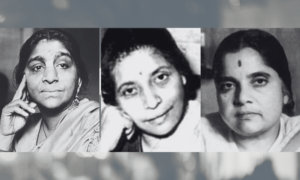
4. Hansa Jivraj Mehta
She held discussions in favour of the Uniform Civil Code and asked the points to be a step ahead of its time otherwise it will be a “retrograde step”. Along with that she also played a role in advocating for social justice, inclusivity, and also requested the use of gender neutral terms in the Universal Declaration of Human Rights.
5. Begum Qudsiya Aizaz Rasul
Seeing reservation as a tool of self-destruction, this woman leader was completely against it and did not see it as a means that would allow an equality with the majority. One of the few muslim women in politics, the only in the Constituent Assembly, her work led her to become the Minister for Social Welfare and Minorities in 1971.
6. Ammu Swaminathan
When she raised her concerns regarding the representation of women in the Hindu Code Bill, she only got laughter from the male committee members in response. Ammu was also one of the founding members of the All India Women’s Conference and helped solidify the place of women in politics.
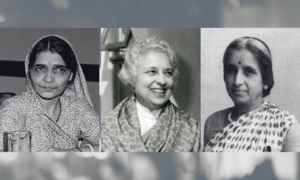
7. Annie Mascarene
Before she became the first woman MP from Kerala, she was a part of debates regarding the centralization of power right after the country became democratic. She advised that a step like this would make our country seem more autocratic instead.
8. Dakshayani Velayudhan
As the first and only Dalit woman in the committee, she was against the idea of continuing the practice of untouchability, but also did not stand with the idea of reservation. Seeing that the marginalized communities were still “economic slaves”, she did not see a percentage of separate electorates making any change in the situation.
9. Rajkumari Amrit Kaur
She was India’s first Health Minister, and the founder of AIIMS. Her contributions to the Indian Constitution were in favor of abolition of any reservations based on religion. This woman leader was the one behind the framing of Indian Women’s Charter of Rights and Duties.
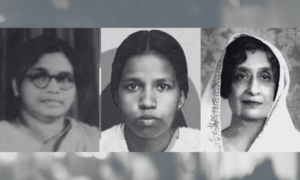
10. Sucheta Kriplani
First CM of UP, a vital member of the Quit India Movement, and founder of the women’s wing in Congress, Sucheta is a beacon for women in politics. She sang Vande Mataram, and the national anthem, Jana Gana Mana before Jawaharlal Nehru’s speech on August 14, 1947.
You might also like to read: 7 Brave women who helped in India’s Freedom struggle
11. Malati Choudhary
In the drafting of the Constitution, she brought up how important education was, even more so for adults who had never gotten any since they were living in the rural areas. For the children of freedom fighters, she even established a hostel named Bajiraut Chhatravas.
12. Leela Roy
The only female member from West Bengal, she was a supporter of women’s education, and the encouraging force behind the participation of women in the struggle for freedom. She also supported the restriction on religious practices from creating an obstacle in any law.
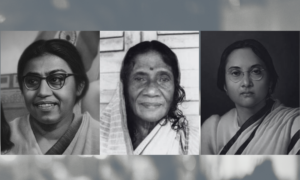
13. Purnima Banerjee
Though she had opposed the inclusion of ‘Right to Property’ in the fundamental rights, it was years later in 1978 that her proposal was given due consideration, and it was turned into a legal right instead. She was also the leader behind the increased involvement of rural sectors.
14. Vijayalakshmi Pandit
She was the first woman Cabinet Minister, and the first Asian woman who was elected the President of the UN General Assembly. She took part in discussions regarding the Preamble, and also contributed to discussions about qualifications of Rajya Sabha members.
15. Kamala Chaudhri
This leader was not only an active fighter for the education of women who were living in the rural or backward areas, she was also an author where her stories delved in the topics of women’s struggles. She was one of the women leaders who was a key part of the Civil Disobedience Movement.
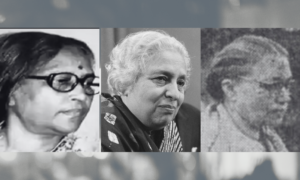
Dealing with opposition, belittling, and even just plain ridicule for their ideas as a minority of 15 in a group of 299 members did not stop these women leaders from carving their place in the politics. For the women out there who are trying to find their own place in this world, let the examples set by these women motivate you to achieve anything you want.
Also Read: Meet 5 Indian Women Jewelry Designers who are Making a Mark on International Platforms
Also Read: Real Women Entrepreneurs tell us Why they Started their Business Journey
